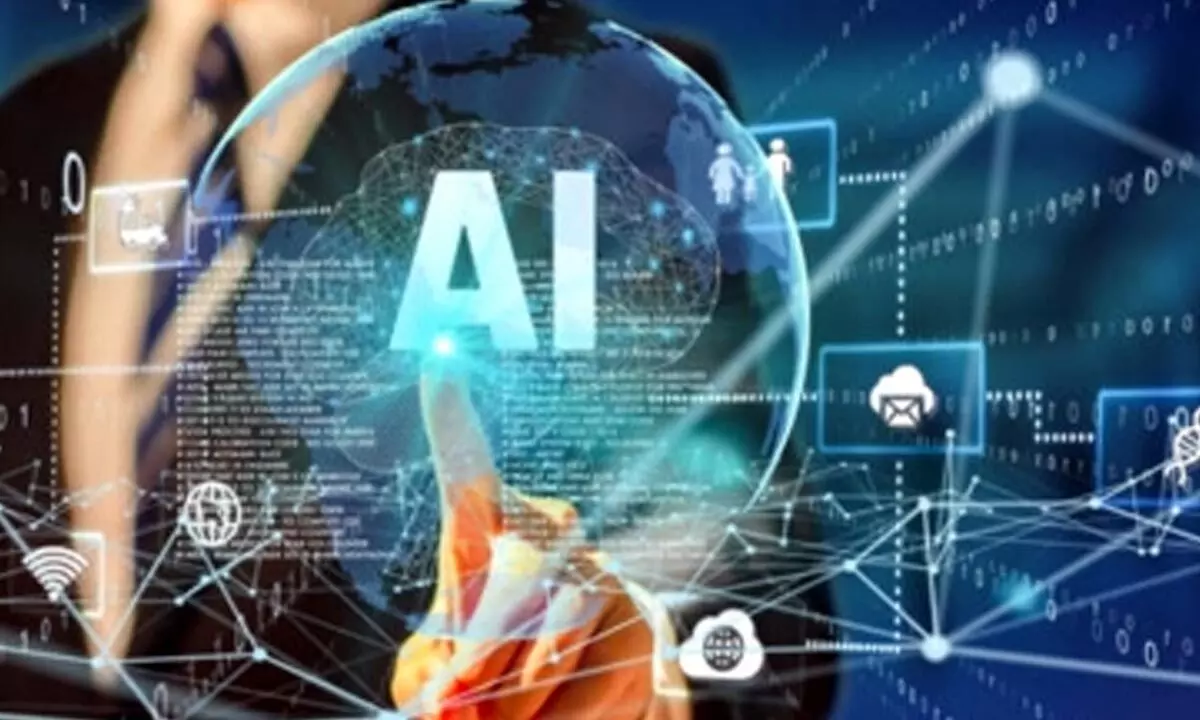Live
- Sensex, Nifty slip under pressure amid weak global cues
- Posters on novel solutions to problems at Tech Summit
- Conduct Tiruchanoor fest akin to Tirumala’s: TTD EO
- Allocate Khelo India funds for sports infra in SVU
- BJP stages protests in various dists over alleged Waqf encroachments
- CM defends BPL ration card cancellation
- Industry should make use of Rs 1-trn ANRF fund: Goyal
- TTD chairman meets Telangana CM
- MITS faculty awarded with PhD by VTU
- Sannapureddy takes charge as RTC regional chairman
Just In
AI at work can trigger binge drinking, insomnia among employees: Study

Employees who frequently interact with artificial intelligence (AI) systems are more likely to experience loneliness, binge drinking and insomnia than colleagues who work alongside humans, a new study has shown.
San Francisco: Employees who frequently interact with artificial intelligence (AI) systems are more likely to experience loneliness, binge drinking and insomnia than colleagues who work alongside humans, a new study has shown.
According to a study by the American Psychological Association, employees who used AI systems frequently were more likely to offer assistance to co-workers, but this response could have been triggered by their loneliness and need for social contact.
"The rapid advancement in AI systems is sparking a new industrial revolution that is reshaping the workplace with many benefits but also some uncharted dangers, including potentially damaging mental and physical impacts for employees," said lead researcher Pok Man Tang, an assistant professor of management at the University of Georgia.
"Humans are social animals, and isolating work with AI systems may have damaging spillover effects into employees' personal lives," he added.
Four experiments were carried out in the US, Taiwan, Indonesia, and Malaysia. The results were consistent across cultures.
Moreover, the researchers discovered that participants with higher levels of attachment anxiety -- the tendency to feel insecure and concerned about social connections -- responded more strongly to working on AI systems, with both positive and negative reactions, such as loneliness and insomnia.
Tang said that in the future, AI technology developers should consider equipping AI systems with social features such as a human voice to mimic human-like interactions.
Employers could also limit the frequency with which employees work with AI systems and provide opportunities for socialisation.
Further, the researchers mentioned that the findings of the study are correlational and do not prove that working with AI systems causes loneliness or other responses, only that there is an association between them.

© 2024 Hyderabad Media House Limited/The Hans India. All rights reserved. Powered by hocalwire.com






